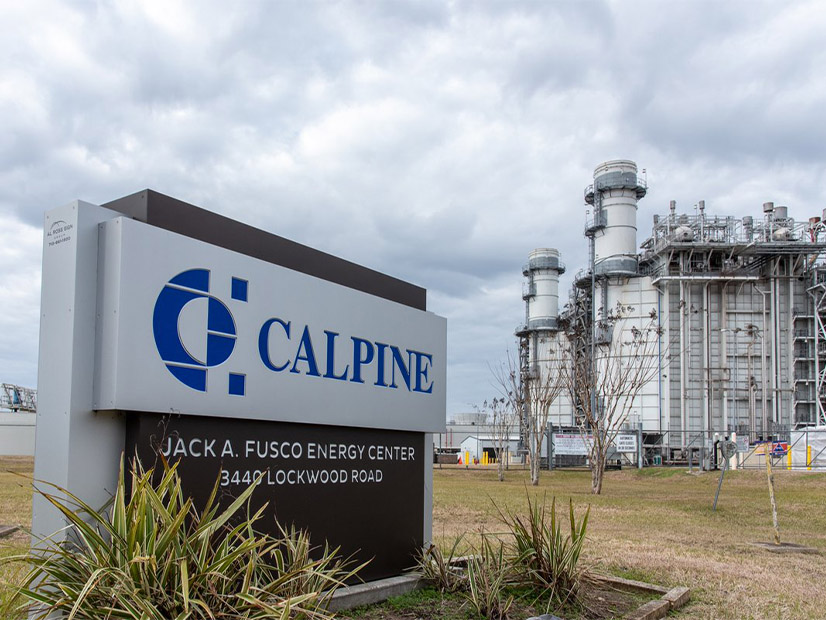
Constellation Energy Corp. will acquire Calpine Corp. in a deal that will create the largest U.S. fleet of zero- and low-emission power generation.
The $29.1 billion acquisition announced Jan. 10 is expected to have a net purchase price of $26.6 billon when the transaction closes.
Constellation owns the nation’s largest nuclear fleet. Calpine has the largest geothermal fleet and the largest lower-emissions natural gas fleet in the U.S., along with a robust effort to develop energy storage and carbon capture/sequestration capacity.
During a conference call Jan. 10, Constellation CEO Joe Dominguez said the deal will create the largest, cleanest and most reliable power portfolio in the nation — nearly 60 GW — with a 40-state footprint ideally suited to meet what is expected to be a soaring national demand for electricity.
He noted Microsoft’s recent announcement that it expects to spend $80 billion on new data centers in 2025 alone.
Analysts on the call were impressed with the terms of the transaction.
Constellation stock closed 4.6% lower in heavy trading Jan. 8, as word of the pending agreement began to circulate. The U.S. stock market was closed Jan. 9, but the stock price soared in early trading Jan. 10, after details of the transaction were released.
Constellation stock closed 25.2% higher in very heavy trading Jan. 10 while the broader markets took a beating on newly released economic data.
Constellation said the acquisition will create the nation’s leading competitive retail electric supplier and allow it to offer its 2.5 million customers a broader array of solutions with a range of carbon intensities customized to their budgets and sustainability goals.
Constellation expects its customer mix to remain 90% commercial and industrial.
Dominguez noted that most projections show a substantial increase in power demand and show large quantities of renewables being built to meet that need. The high capacity factor of nuclear and natural gas generation provides a steadier alternative to the intermittent nature of renewables.
Dominguez emphasized that Calpine’s fleet is weighted toward more efficient technologies. It has twice as many combined-cycle and cogeneration plants as simple-cycle facilities.
“Calpine’s low carbon natural gas assets are not only incredibly well run, but they are some of the newest, lowest emitting and most efficient in the nation,” he said. “And critically for us, Calpine owns no coal. It has no residual coal plant liabilities.”
Further, Dominguez said, Calpine is involved in developing carbon capture and sequestration technology that will extend the operational lives of the gas plants, taking advantage of abundant U.S. natural gas resources while reducing their carbon footprint.
The $29.1 billion deal involves Constellation paying $16.4 billion in cash and stock to the private owners of Calpine and assuming $12.7 billion in Calpine net debt. Cash generated by Calpine between the signing and closing of the deal and the value of Calpine tax attributes is expected to bring the net purchase price down to $26.6 billion.
Constellation expects an immediate and strong boost to its financials after the deal closes, including a more than 20% jump in 2026 earnings per share.
CFO Dan Eggers said Constellation will not need to issue new debt to finance the acquisition, although subsequently it may issue new debt to retire more-expensive Calpine debt.
The transaction is expected to close within 12 months but faces extensive regulatory review — the U.S. Department of Justice, Federal Communications Commission, FERC and the Canadian Competition Bureau must sign off on it, as well as utility regulators in 22 states.
After the deal was announced, analysts at Jeffries called the terms favorable but said regulatory approval is a key hurdle. They wrote: “Given the increased political and overall attention on power demand, we would expect a protracted process and likely opposition from stakeholders, including regulated utilities.”
Constellation said it would propose asset sales in PJM territory to mitigate any potential market power concern.
An analyst asked for details.
Dominguez said the forward-looking financials being offered reflect an “aggressive amount of divestiture” but held off on specifics.
Chief Legal and Policy Officer David Dardis said the acquisition is complementary because Constellation and Calpine assets are concentrated in separate markets for the most part, which will make the regulatory review more straightforward.
The exception is PJM, particularly eastern PJM, where there is more overlap. So Constellation is moving proactively to address this, Dardis said, and its filings in the next week or so will reveal more details.
As they stand now, PJM accounts for 69% of Constellation’s footprint and only 14% of Calpine’s footprint, which is concentrated heavily in ERCOT and CAISO. Constellation projects 49% of the combined business will be in PJM, 23% in ERCOT, 10% in CAISO and 8% in NYISO.
An earlier version of this story misstated the anticipated net purchase price of Calpine, which is projected to be $26.6 billion.




